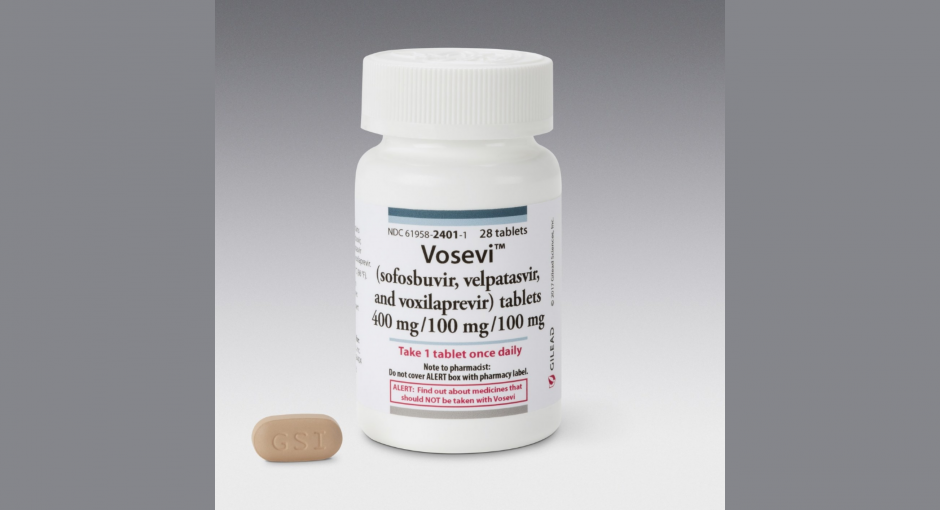The National Association of Community Health Centers (NACHC) told drug manufacturer Gilead this morning its new conditions on 340B contract pharmacy pricing on its branded hepatitis C treatments are “unconscionable,” “appalling,” “wrongheaded,” and “the latest example of corporate greed from a pharmaceutical company.” It asked Gilead “to reverse course immediately.”
NACHC’s harsh comments in a letter today to Gilead Chairman and CEO Daniel O’Day follow similar rebukes last week by Ryan White Clinics for 340B Access and hospital group 340B Health.
Starting May 2, 340B covered entities will have to provide claims level data for Gilead’s branded hepatitis C (HCV) products to be able to continue to be eligible for bill to / ship to orders for multiple contract pharmacies. Grantee and hospital entities say conditioning 340B pricing on the provision of claims data is illegal. They also have raised privacy concerns as well as worries over the added burden of sharing the claims information. In addition, covered entities are concerned that by sharing this type of data, third party payors will ultimately reduce reimbursement to 340B pharmacies.
The affected products are Epclusa, Harvoni, Sovaldi, and Vosevi. Authorized generics of Epclusa (sofosbuvir / velpatasvir) and Harvoni (ledipasvir / sofosbuvir) sold by Gilead subsidiary Asegua Therapeutics are excluded.
Most of the 14 other manufacturers that restrict 340B pricing when entities use contract pharmacies have exempted non-hospital entities. Gilead’s policy does not.
That choice has touched a raw nerve among grantee entities. Many rely heavily on revenue from billing commercial payers for Harvoni and other Gilead HCV drugs dispensed by contract pharmacies, grantee entity representatives say.
All first-line antiviral treatments for hepatitis C appear now to have manufacturer conditions on 340B pricing. AbbVie’s 340B contract pharmacy restrictions apply to its hepatitis C treatment Mavyret. Merck’s policy covers all its non-physician-administered drugs. That would appear to include its HCV drug Zepatier. Merck currently exempts grantee entities from its 340B pricing restrictions. It has warned, however, that it “will continue to evaluate program participation of federal grantees to determine if further action is warranted.”
“Profits Over Patients”
“I write today to express our strong opposition to Gilead’s recent decision to restrict shipments to 340B contract pharmacies,” NACHC Interim President and CEO Rachel Gonzales-Hanson wrote today to Gilead. “This decision will place health center patients’ ability to receive Gilead drugs at risk and harm the most vulnerable in our society. Your actions are unconscionable, and I would encourage you to reverse course immediately.”
Gonzalez-Hanson said, “Gilead’s recent actions came as a shock to the health center stakeholders across the nation but reflect a continued commitment to profits over patients by the company.”
“Your company has made billions from the four hepatitis drugs listed in your recent announcement,” she wrote. “Yet you are now taking steps to cut off access to low-income patients who rely on care from health centers and other 340B grantees. This is appalling but just the latest example of corporate greed from a pharmaceutical company.”
“This decision is reminiscent of the pricing and marketing strategies that led to the launch of Sovaldi at $1,000 per pill, or $84,000 for a single course of treatment to maximize revenue,” Gonzalez-Hanson continued. “This launch price was followed by the introduction of Harvoni at $94,500. As the Senate Finance Committee found in its 2015 bipartisan investigation, fostering broad, affordable access was not a key consideration in setting the wholesale prices.”
“I would urge you to reverse this wrongheaded decision prior to the May 2, 2022,
effective date before real and lasting damage is done to safety net providers and their patients,” Gonzalez-Hanson said.
Gilead’s Response
In response to a request this morning for comment about such criticism, Gilead referred to its March 15 statement about its new policy.
“Gilead recognizes the important role of the 340B program in providing medicines for individuals with low incomes,” the company said in the statement. “The 340B program has grown rapidly in recent years, and a well-documented lack of program oversight has elevated concerns among stakeholders about the program’s integrity and sustainability. Over time, Gilead has seen duplicate discounts and diversion of its hepatitis C products distributed through contract pharmacies with increased frequency. This means multiple discounts have been improperly applied to the same single bottle of Gilead medicine, and/or discounts are being claimed on bottles dispensed to individuals who are not patients of a 340B covered entity.”


